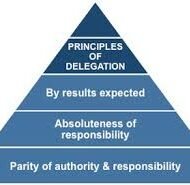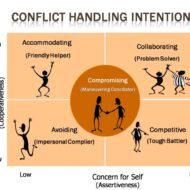Posted by Managementguru in Decision Making, Entrepreneurship, Human Resource, Principles of Management
on Mar 20th, 2014 | 0 comments

How Women Entrepreneurs are Viewed by the Society An entrepreneur is one person who has the ability to think out of the box, to cash in on the opportunities, to think big and different, to go for innovative ideas, to take warranted risks and to make a difference amongst the ordinary lot. Modern business world and the society as a whole have understood the importance of women emerging as successful and powerful entrepreneurs which has proven good for the growth of a country’s economy. Challenges of being a woman: The challenges start at the grass root level: being a woman is sufficient enough to create a gender bias and to be looked down. Physically the differences are obvious and the strength that a man is empowered with cannot be overruled, but the inner strength and the power to conquer that a woman is empowered with can never be equaled. Running a household is even more difficult than running a corporate business. All your management principles come under the household umbrella. No tactics or strategy is left unturned for the smooth running of the household. A woman needs no training in areas of strategic planning decision making(comes naturally) developing interpersonal relationship delegating authority decentralization managing leadership motivating others and self motivation crisis management impression management quality of work Women CEO’s add Value to their Companies: Nature has blessed her with all these and many more managerial qualities that are needed to manage an organization effectively and efficiently. Gone are the days when they were treated a step down, now most of the corporates have very efficient women CEO’s and their ability is reflected in terms of productivity and profitability. Moreover a woman adds value to the company as responsibility is her second name and this works out in favor of the organization to gain the trust and confidence of its consumers, suppliers and stake holders. A woman can occupy any post of its highest kind including the presidential or prime ministerial positions. The enthusiasm that a woman entrepreneur exuberates is infectious and induces positive vibes in the organization. Be it negotiations, tackling the union leaders and workers, business travels or bargaining, nothing is a problem. She is more efficient in clinching deals and proves adventurous in concluding new business ventures. Work – Life Balance: A woman has to have a balance between her family, relationships, children and work. That is the biggest ever challenge which she handles with ease. The financial pinch that the recent economy has created has served as an eye opener for men in realizing the fact that a house needs two financial paymasters for running the show. Success Ratio of Women Entrepreneurs: Many few women entrepreneurs emerge out as victors as most of them lack support from their counterparts and lack of financial support from banks, financial institutions may also slacken the pace and hinder their progress. The success ratio has considerably increased when compared to olden days but still many of them lack the nerve to start their own business. Ignorance and lack of self reliance are the major factors hindering the development of female entrepreneurs. I have seen many women who are born in business families with natural business instinct and their added advantage would be the already available infrastructure, platform and guidance to grow and make it to the top. Even circumstances force certain women to go in for self owned business and once they taste the essence of success they never want to look back. The society has a bigger role to play in developing more women entrepreneurs by giving positive support. Women have a better judgement on role analysis and perception which turn them into better role models in any field or...

Posted by Managementguru in Human Resource, Organisational behaviour, Principles of Management
on Mar 19th, 2014 | 0 comments

You Can Delegate Authority, but Not Responsibility Responsibility of a Manager: A corporate manager is accorded with the huge responsibility of leading his subordinates in the right direction, by giving proper insights on the tasks to be accomplished. The success rate depends on how well he delegates his authority down the line to get things done. The art of delegation results not only in down sizing his work pressure but also in the empowerment of subordinates, that elevates them to a higher plane of understanding and achievement. An Excerpt from The Art of Delegation: Developing This Essential Managerial Skill Delegation helps you handover the authority of certain tasks to capable team members so that you free up your time to work on more pressing issues. But you still remain responsible to get those completed in proper way. Hence it is essential to have a status check or communication with the team member on regular basis. Accountability of Subordinates: The subordinates, when entrusted with the responsibilities of performing a task by themselves and the necessary authority to make decisions within the area of their assigned duties, are obliged to perform. The necessary assistance and training for the new assignment has to be planned for, by the manager to make them perform as per the expected standards. The thing is right people should be chosen for the entrusted job. They should possess the zeal and enthusiasm to deliver the desired output. Some people perform beyond expectations and they should be rewarded with additional responsibilities. Whatever the case may be, it is a wise thing to delegate simple assignments at the initial stage, and proceed with more challenging jobs depending upon the caliber of the incumbent. THE ENTREPRENEUR’S GUIDE TO DELEGATION Clear and Clever Delegation: Clear and clever delegation facilitates to build a formal organization structure, where the subordinates are trained well and they look up to the manager for direction and guidance. Although the authority is delegated, the manager is held accountable and answerable to the management for the performance output or the end result. Some managers hesitate to delegate, just for the reason that their weaknesses might get exposed. Some don’t have confidence in their subordinates. Some even fear that they might lose their power if the subordinate is very shrewd and exceeds the expectations. Managers fail because of poor delegation; the reasons being personal attitude of managers in delegating authority. Let us understand some of the basic principles to be adhered to while delegating: The authority delegated to subordinates should be adequate enough to ensure their ability to accomplish the expected results. Authority can be delegated but responsibility can never be delegated. Responsibility of subordinates is “performance” and that of managers is “responsibility for the action of their subordinates”. One cannot be held responsible for a task if he has only limited authority. There need to be a balance between authority and responsibility. The presence of a single superior will invoke greater feeling of personal responsibility among the subordinates. Lack of receptiveness on the superior’s part will incur greater loss in terms of performance and efficiency. Instead, a manager should develop a trustful attitude towards his subordinates and should have the patience to explain the policies, objectives and guidelines and give sufficient authority to perform a duty. HOW WELL EMPLOYEES KNOW ABOUT YOUR ORGANIZATION? Although initially the efforts taken to train a subordinate is time consuming, the more empowered he becomes, less is your time taken to accomplish the enterprise objectives. The superior must be able to create a climate of mutual trust and goodwill, to make delegations effective in the light of expected...

Posted by Managementguru in Business Management, Motivation, Organisational behaviour, Principles of Management
on Mar 9th, 2014 | 0 comments

Herzberg and Victor’s Motivation Models Herzberg’s Hygiene Factor Theory Psychologist Fredrick Herzberg asked a basic question to 200 accountants and engineers in firms in and around Pittsburg-“What do people want from their jobs’? He used the critical incident method of obtaining data for analysis. “Think of a time when you felt exceptionally good or exceptionally bad about your job, either your present job or any other job you have had”. The responses obtained were fairly consistent in that, good feelings were associated with job content and bad feelings with job context. The ones on the right side of the table are intrinsic factors leading to job satisfaction and acted as motivators and ones on the left side lead to job dis-satisfaction and were termed as hygiene factors. Hygiene Factors: One has to understand that hygiene factors need not always cause dis-satisfaction; when the managers handle the situation in an amicable manner in terms of company policy, supervision, working conditions, salary and administration, things will be in the right direction but, even if they are adequate, people are never satisfied. These are called Hygiene factors and managers must try to eliminate factors that create discontent among the workers. If we want to motivate people, the real motivators are achievement, recognition, responsibility and growth. We must change the job design in such a way that the work arising out of the job should be challenging, exciting and should offer them a sense of achievement, recognition and growth. HYGIENE FACTORS MOTIVATORS Company policy Achievement Relationship with superiors Recognition Working conditions Work itself Salary Responsibility Relationship with peers Advancement Personal life Growth Relationship with subordinates Status Security CRITICISM: The factors which one particular group of individuals finds to be dis-satisfying may not be applicable for everybody. Factors which are beyond the scope of employees such as policy formulations cannot be considered as hygiene factors. VICTOR H. VROOM’S EXPECTANCY MODEL Valency*Expectancy=Motivation By increasing the positive value of the outcomes through such means as better communication about the outcomes, values and actually increasing them, i.e., the rewards and also by increasing the expectancy of the person by making him believe that the work will really lead him to the desired outcome, organizations can make a strong connection between the work and the...

Posted by Managementguru in Business Management, Organisational behaviour, Principles of Management
on Mar 7th, 2014 | 0 comments

Reinforcers and Behaviour Changes Reinforcers induce and enhance the association between the cue and the expectancy. This leads to increased performance levels and positive attitude development. This is an effective and efficient strategy that has been proved to be successful. Reinforcement is inevitable for learning process and in a dynamic corporate business environment, unlearning the old things and learning and adapting oneself to satisfy the needs of the changing environmental and economic factors is the critical success factor that serves as the backbone of the success of the company. Significance of Learning: Learning is not the only attribute that gets enhanced by reinforcers; as a result there is a repetition of desirable behavior that helps in maintaining the consistency, cordiality and climate of the organization. Reinforces increase the strength of response leading to desirable or undesirable consequences depending upon the kind of reinforcer, which might be a reward or a punishment. Either way it elicits response that gets strengthened in course of time. Mindset of People: The management side that is the deciding authority has to come to clear terms with the kind of treatment applicable on specific situations; say for instance when there is a need to complete a project in the stipulated time or achieve quantifiable targets which may prove very challenging or increase the production capacity in order to retain a major market share. Whatever be the case, the morale of the workers down the line, executives who coordinate the process, the managers who manage and report has to be maintained in the highest order. The mind set of the people working for you is very important as it encompasses the quality of work done, commitment to duty and determination to reach the target on time. Rewards: Rewards always make people happy and are found to be positively reinforcing. If you feel that monetary rewards are always a better stimulus, you are wrong. Money is always considered to be a reward; to consider it as a reinforcer cannot be neglected but at the same time it definitely is not a positive reinforcer.Feedback on performance is rated high on the reinforcer scale which takes you to the next level as a performer. Modern organizations have understood the system’s anomaly that gives undue importance to the huge amount of data that speaks volumes about people and their merits and achievements. Is it really enough to know things about people? People expect feedback about their performance and people with some degree of achievement definitely have an intense desire to know how they are doing? The more specific your feedback is, better the impact and greater the delay between the performance and feedback, the less the effect. Work Environment: The work environment itself can serve as a very good positive reinforcer provided there is freedom of expression, liberty to participate and an open door policy adopted by the managers and superiors. The top level management must take utmost care to design the reward system in such a way that it warrants fairness and equity. Employees are motivated to go for self appraisals with goal setting that is the biggest reinforcer of all times. Recognition: Recognition, rewards and praise tend to boost the ego of individuals which you can work it up to your advantage. Punishment is one of the most used and convenient but least understood and badly administered aspect of learning and reinforcing. Punishment equally alters the behavior of your subordinates which becomes more complex in course of time. Positively dealing with your subordinates by giving them one more chance, of course with a warning might serve the purpose. If punishments modify the behavior...

Posted by Managementguru in Human Resource, Principles of Management
on Feb 28th, 2014 | 0 comments

Conflict Management What is a conflict? An organization is a network consisting of human element as the major functional source and as such is prone to weaker vulnerable aspects of human psychology. Conflict is, of course, one such weak point. The diverse functional groups in the organization get into conflicts while setting up objectives and goals; in prioritizing and weighing the objectives, the methods of their achievement and their evaluation. Though there are numerous kinds of conflicts, this is the major one affecting the functioning of the firm. Certain examples of conflicts: The objective of a project manager to construct a building might go against the objective of minimizing the project cost. For work force, their personal goals come before the organizational goals. The objective of the production department to increase productivity may go against the objective of maintaining the product quality The objectives of the marketing department to increase the sales through promotions may not be welcome by the finance department whose objective will be to cut the cost’ Reasons for conflicts: 1. Lack of clarity as to the scope and relevance of functions in achieving the corporate objectives. 2. Clash between line and staff authorities. 3. Ignorance or lack of knowledge needed for decision making in the part of chief executives 4. Different sets of beliefs and views, along with one’s personal interest and ego. 5. Different kinds of attitudes of members of the organization 6. Absence of clarity in organizational policy, procedures, rules and guidelines. The Results of Conflict: The most affected element in a group conflict is “Employee Morale.” Conflicts undermine professionalism and lead to under utilization of organizational capacity. Loss of Importance: A particular group of employees feel that their importance is being undermined. When a manager is being inducted from an outside source, the prospective employees of the firm feel that they have been let down by the management. Frustration: There are certain rules and regulations to be stuck to when issues arise. If the finance department is not consulted regarding issues related to insurance claims, there are chances that the company might lose a good deal. In such cases frustration arises which is not good for the health of the firm. Feeling of Insecurity: This affects severely the morale of an employee. A clerical staff feels insecure if new technological system is introduced in the company where he is a novice. When one’s importance is persistently reduced, he may start feeling redundant. Blocked Personal Growth: Persons who experience reduced importance may apprehend a situation where they don’t expect much by way of personal growth through increments and...










